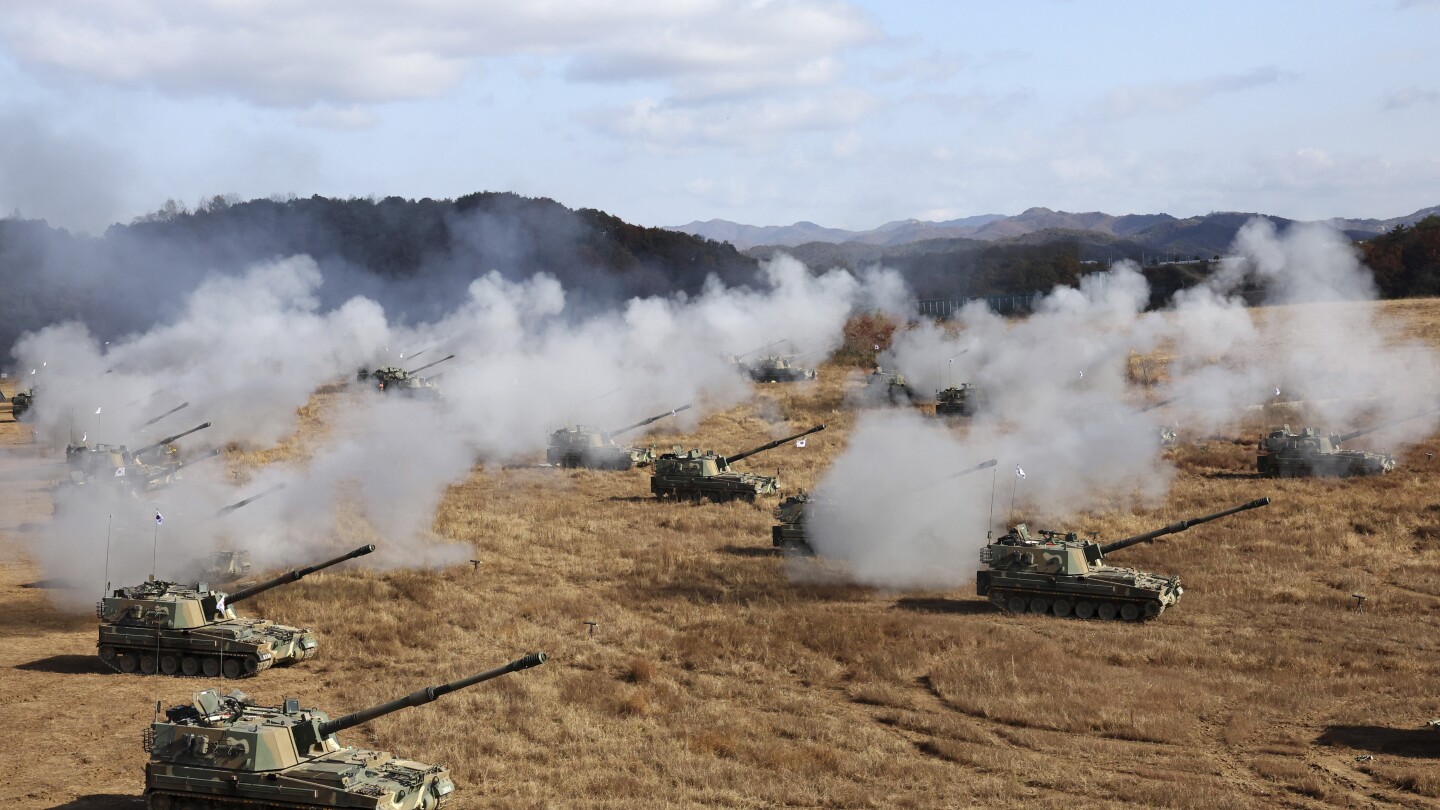South Korean and U.S. troops have been conducting live-fire exercises this week to hone their ability to respond to potential “Hamas-style surprise artillery attacks” by North Korea, South Korea’s military said Friday.
The two forces regularly conduct live-fire and other training, but this week’s drills come after Hamas’ Oct. 7 assault on Israel raised security jitters in South Korea, which shares the world’s most heavily fortified border with rival North Korea.
Experts say the North’s forward-deployed long-range artillery guns can fire about 16,000 rounds per hour in the event of a conflict, posing a serious threat to Seoul, which is about 40-50 kilometers (25-30 miles) from the border.



This is the best summary I could come up with:
SEOUL, South Korea (AP) — South Korean and U.S. troops have been conducting live-fire exercises this week to hone their ability to respond to potential “Hamas-style surprise artillery attacks” by North Korea, South Korea’s military said Friday.
The two forces regularly conduct live-fire and other training, but this week’s drills come after Hamas’ Oct. 7 assault on Israel raised security jitters in South Korea, which shares the world’s most heavily fortified border with rival North Korea.
Experts say the North’s forward-deployed long-range artillery guns can fire about 16,000 rounds per hour in the event of a conflict, posing a serious threat to Seoul, which is about 40-50 kilometers (25-30 miles) from the border.
The three-day firing exercises, which began Wednesday, involved 5,400 South Korean and U.S. soldiers, 300 artillery systems, 1,000 vehicles and air force assets, according to South Korea’s military.
In a simulated response to “the enemy’s (possible) Hamas-style surprise artillery attacks,” the exercises practiced strikes designed to “remove the origins of the enemy’s long-range artillery provocations at an early date,” South Korea’s Ground Operations Command said in a statement.
It typically views major U.S.-South Korean military training as invasion rehearsals and responds with missile tests.
The original article contains 252 words, the summary contains 197 words. Saved 22%. I’m a bot and I’m open source!